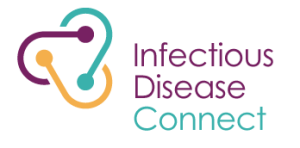Apr 28, 2019
Infectious Disease Connect launches to aid community hospitals

ID Connect initially will focus on the more than 4,000 U.S. acute care hospitals with fewer than 300 beds, which have difficultly recruiting and retaining the limited supply of ID specialists.

UPMC Enterprises has launched a new portfolio company to help community hospitals to reduce transfers and improve outcomes for patients with infectious diseases.
The company, Infectious Disease Connect, or ID Connect, is using telemedicine to extend the reach of UPMC’s world-class specialists to address a nationwide shortage of physicians trained to deal with the growing threat of drug-resistant organisms and increasing pressure on hospitals to reduce health care-associated infections.
ID Connect is built on UPMC’s five years of experience using telemedicine to deliver ID services to outlying hospitals, and was founded by two UPMC physicians, Rima Abdel-Massih, MD, director of tele-ID services at UPMC, and John Mellors, MD, chief of the Division of Infectious Diseases at UPMC and the University of Pittsburgh. Dr. Abdel-Massih also serves as Chief Medical Officer for ID Connect.
Dave Zynn is president of the company and has 30 years of management experience in startup and growth companies, including five years of experience as CEO of a telemedicine company.
Critical need for ID services

Health care-associated infections affect 5-10 percent of patients and result in more than $40 billion annually in hospital costs. And up to half of antibiotic prescriptions are unnecessary, leading to higher costs and potentially harmful side effects and growing antibiotic resistance for patients.
“It has never been more critical for hospitals to properly diagnose, treat and prevent such infections,” Dr. Abdel-Massih said.
In addition to the need to provide better care to patients and lower costs, hospitals can face penalties from the government if they don’t reduce health care-associated infections. Effective ID programs in hospitals have been shown to reduce patient transfers from small community hospitals to tertiary facilities, as well as decrease infections, produce shorter hospital stays, cut readmissions, and lower patient mortality.
ID Connect already serves 10 UPMC and five non-UPMC hospitals in Pennsylvania and surrounding states. To grow, the company initially will focus on the more than 4,000 U.S. acute care hospitals with fewer than 300 beds, which have difficulty recruiting and retaining the limited supply of ID specialists.
Experiencing nice adoption, growth
ID Connect was created to fill the gap by cost-effectively providing ID specialists, full-time or part-time, to augment existing staff at hospitals. Initially, the new company will be staffed by UPMC ID physicians. As ID Connect grows into new markets, it will hire additional physicians.

“We see a huge need for better infectious disease control in hospitals across the country,” Zynn said. “We’ve seen very nice adoption and growth from each of our customers, and we’re getting great feedback on our service and value.”
Launched on March 1, ID Connect is housed at UPMC Enterprises’ Bakery Square office and making use of the organization’s shared services model that provides marketing, legal, human resources, and other administrative support to portfolio companies.
“The ability to start a company and have those resources and expertise in the cost-effective manner that they’ve created here at Enterprises is tremendous,” Zynn said.
The company’s tele-ID services include providing patient consultations, expertise in antimicrobial stewardship, and infection prevention and control, according to Zynn. Longer-term, the company expects to serve post-acute care, patients at home following hospital discharge, and international facilities.
“ID Connect is well-positioned to effectively serve hospitals and their patients because it was created by a health system that has led the way in both managing infectious diseases and implementing telemedicine,” Zynn said.


